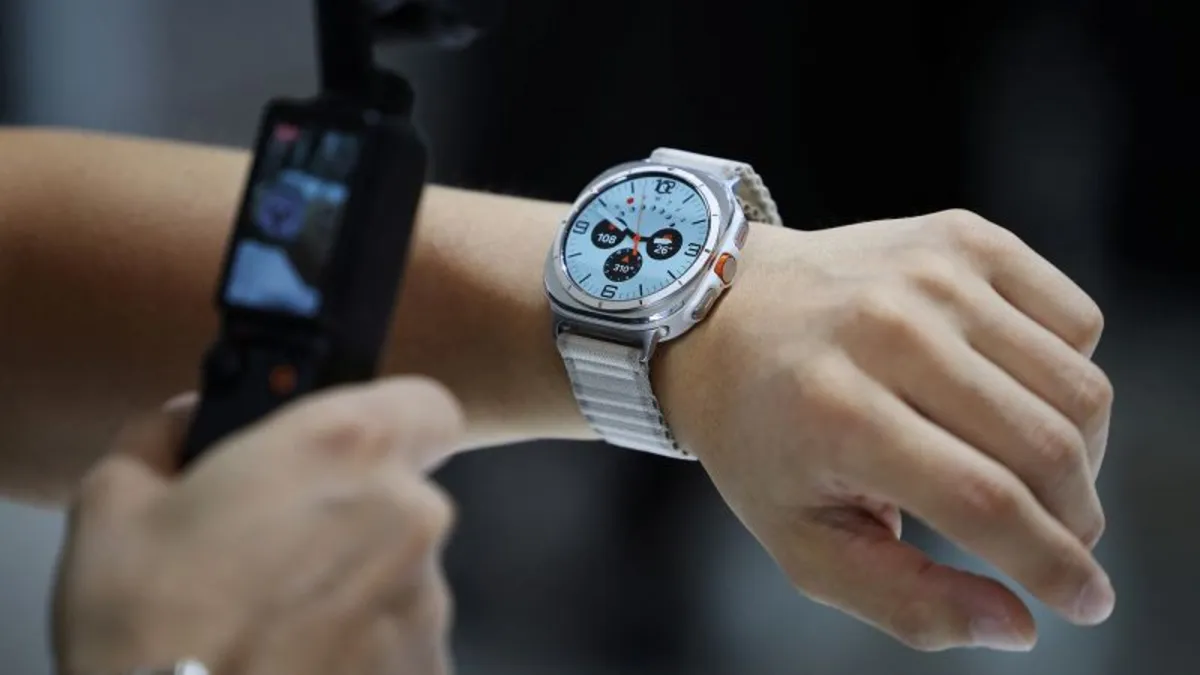
Healthcare costs are projected to increase significantly by 2025, prompting a growing number of older adults to seek the option of aging in place. This trend is particularly appealing to tech giant Samsung, which is eager to capture a larger share of the rapidly evolving digital health market. Hon Pak, the vice president and head of Samsung’s digital health team, emphasizes that the combination of an aging population and a rising incidence of chronic diseases is shifting care from traditional settings to the home. “You have an aging population with increasing prevalence of chronic diseases, and then you have costs going up,” Pak stated in a recent CNN interview. “And so all of those pressures are leading to care shifting to the home where we happen to be.”
Samsung aims to leverage its advancements in digital health to compete effectively against Apple in the realm of wearable technology. Both companies are expanding their wellness offerings to secure long-term customer loyalty, especially in light of slowing smartphone sales. A beta version of Samsung's updated software will roll out this month for the Galaxy Watch 5 and newer models, although some features will be exclusive to the latest devices.
Pak believes that Samsung has a competitive advantage in integrating health into the home environment, as the company already has a strong presence with its range of appliances and home entertainment products. According to estimates from leading market research firms, Samsung holds the title of the world's largest smartphone maker by market share.
Despite its dominance in the smartphone sector, Samsung faces significant challenges in the smartwatch market. Currently, it holds only about 6% of the global smartwatch market as of the first quarter of 2025, while Apple leads with approximately 20%. Jitesh Ubrani, a research manager for the International Data Corporation (IDC), notes that Apple has effectively marketed the Apple Watch as an essential smartphone companion, positioning it as a “must-have” device.
In response, Samsung plans to differentiate itself by emphasizing preventative health advice, such as encouraging users to maintain a balanced diet and get adequate sleep to ward off potential health issues. However, it also faces competition from innovative health tech startups like Oura, which offers a smart ring that follows a similar proactive approach to health monitoring.
In its upcoming smartwatch update, Samsung will introduce a groundbreaking feature that measures wearers' antioxidant levels. This feature utilizes LED lights at various wavelengths to estimate levels of beta carotene, an antioxidant found in foods like carrots and spinach. Users will need to remove the watch and press the sensor on the back to operate this feature, which provides an estimation of antioxidant levels rather than a direct assessment of vegetable intake. Pak revealed that this feature underwent clinical trials to measure beta carotene levels in the blood.
Additionally, the update will include personalized bedtime recommendations and a “running coach” that designs training programs to help users achieve their running goals. This comes on the heels of Apple’s recent announcement of its own workout coaching feature, called Workout Buddy.
Pak also mentioned that Samsung is developing an AI-powered health chatbot, although specific details remain undisclosed as no official announcement has been made. Apple is reportedly working on a similar tool, indicating a competitive landscape in AI-driven health solutions.
Beyond smartwatches, Pak envisions a future where AI-powered smart glasses could introduce innovative health features. These glasses may have the capability to assess whether a person is eating too quickly or if their meal contains allergens by analyzing the food on their plate. Existing services are already leveraging AI technologies like ChatGPT and Google’s Gemini to analyze the nutritional content of food through photographs.
While Samsung's smartwatches are currently incompatible with iPhones—a decision made several years ago to encourage user loyalty to Samsung devices—Pak has not dismissed the idea of future collaborations with Apple. “I think there are always discussions about this,” he remarked, adding that while active discussions are ongoing, no decisions regarding timing have been finalized.
As Samsung continues to innovate in the digital health space, it remains focused on enhancing the user experience, particularly for older adults seeking to maintain their health while aging in place. With the integration of advanced technology and a commitment to preventative health, Samsung is poised to make significant strides in the wearable technology sector.